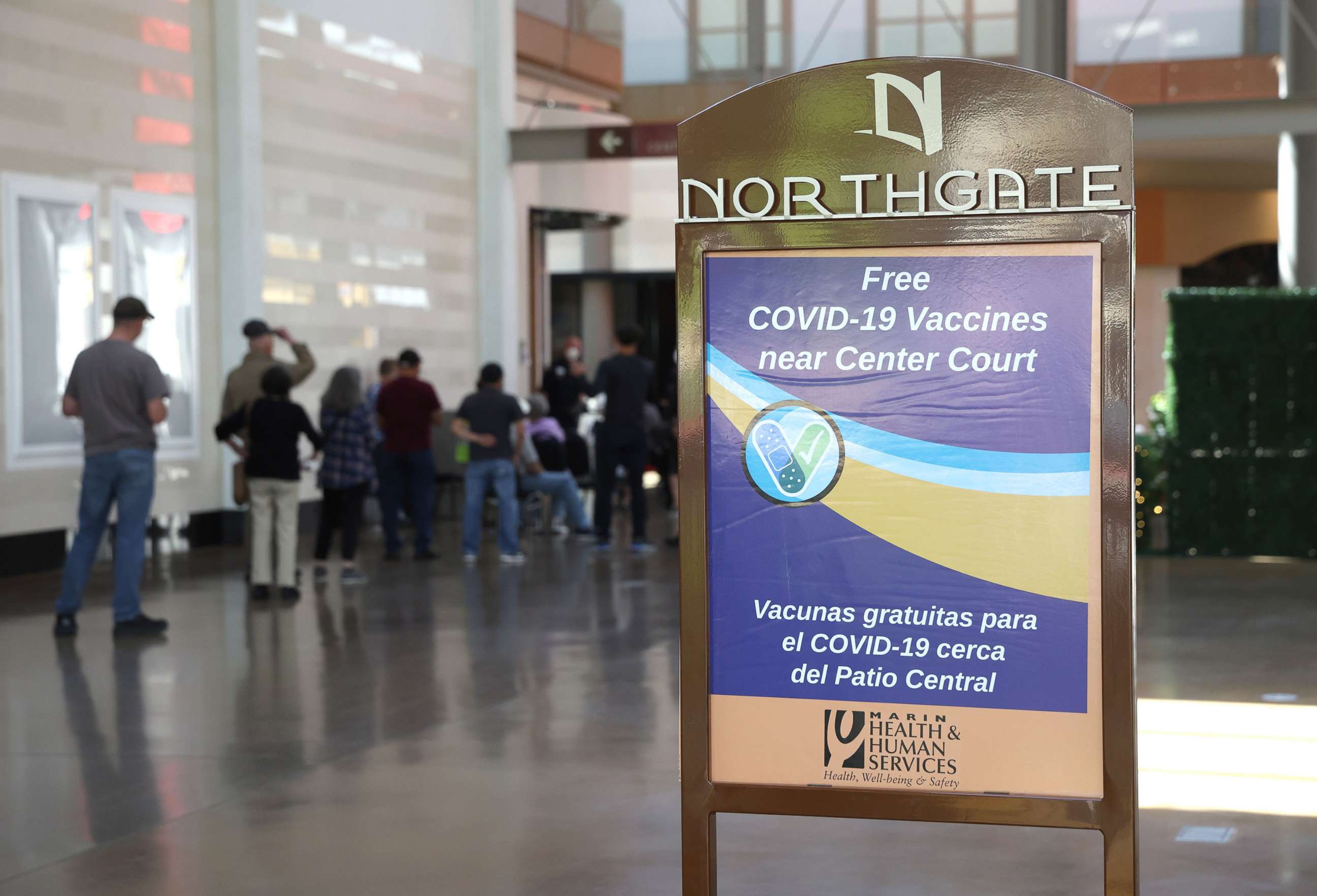New COVID bivalent vaccine expected in US in the fall
The UK just became the first country to approve the new booster shot.
On Monday, the U.K. became the first country to approve a bivalent vaccine booster shot for adults, which would target both the original COVID virus and the Omicron variant.
This vaccine, which is likely going to be available in the U.S. starting in the fall, is expected to provide increased and longer-lasting protection against COVID and the new variants.
Sony Salzman, coordinating producer for ABC News’ Medical Unit, sat down with ABC News' podcast “Start Here” to discuss what people can expect from the new bivalent vaccine, and the way forward in the country’s vaccination strategy.
START HERE: Yesterday the U.K. became the first country on Earth to approve a new type of vaccine, a vaccine that was engineered with a more recent variant of COVID in mind. Let's check in with ABC's Sony Salzman from our Medical Unit. Sony, is this a turning point? What does this vaccine do?
SALZMAN: I think it is a turning point, Brad. I think what these new vaccines are going to do is shift us into the next phase of the pandemic, where like the annual flu shot each year or season, we have to kind of predict what the virus is going to do and engineer a vaccine that is the best defense against that virus.

The U.K. government just recently authorized a vaccine that is a combination shot, it is Moderna's combo shot. This is called a bivalent vaccine. And what it does is it still protects against that original Wuhan strain that emerged in 2020, but then it also protects against the newer BA1 Omicron strain. And so it combines both of those in the hopes of providing enhanced protection against the variants that are circulating right now.
START HERE: Right, so [with] Omicron cases absolutely skyrocketed in this country because people just did not have the same level of immunity as this variant came onto the scene. So how do I get one of these vaccines, Sony? I want one of these boosters. What's happening in the U.S.?
SALZMAN: So it is coming to the U.S., too, but what we're gonna get here is actually slightly different. FDA, the Food and Drug Administration, they looked at presentations from Moderna and Pfizer and what they said is, you know, that's all well and good, but even within Omicron, we have all these subvariants right? So Omicron BA1 was the first Omicron subvariant, but now here in the U.S. and globally, actually, BA5 is the dominant variant.
What the FDA did is they asked the companies to go back, look at the formula again, and re-tweak it a little bit so that it's a better match against BA5, and that is the version that they have ordered. The expectation is that that would be authorized in September or perhaps October, and be available sometime in the fall.
START HERE: So that sounds great; I guess that it would be the strain that's a little bit more recent, but will it work better? Because I gotta say Sony, I see school about to start and I'm thinking ‘dang, wouldn’t it be nice to get a new vaccine in play before kids are all indoors spreading it to each other's families.’ Is there a balancing act here between timeline and efficacy?
SALZMAN: Well, you know, just to set expectations, Brad, I do think it's really important to remember that even these vaccines that we're talking about the ones that are re-tweaked, and they're reformulated, and they're better matches against these new variants. The virus itself has changed so much that we are not going to get a bulletproof vaccine that protects you against any breakthrough infection.
START HERE: That's no longer the expectation for these vaccines…
SALZMAN: That's no longer the expectation, that's exactly right. So, you know, maybe at some point in the future, there is some really interesting vaccine science, early stages of development here but for these vaccines, and for the way that this virus has evolved, that is no longer the expectation.
The expectation is that they are going to have higher efficacy, particularly against severe illness, and also last longer so that kind of drop off doesn't happen as quickly. So that's the expectation here, but I want to be clear: either of these vaccines, whether you do a bivalent against BA1 or BA5, or anything to that effect, it's going to be better. Every scientist I've talked to says that this is the way forward.
We need to be updating the vaccines to be a better match for the variants that are circulating presently. But it's not going to be this kind of bulletproof approach where you have a vaccine that completely protects you against infection. That's not the expectation.
START HERE: Gotcha. In the meantime, we are hoping to see these Omicron-specific boosters here in the U.S. sometime in September. Sony Salzman from our Medical Unit, thanks a lot.
SALZMAN: Yeah, thank you Brad.




